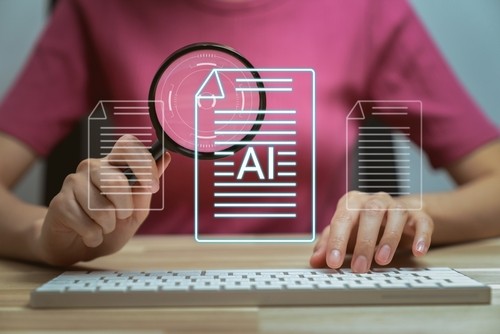Artificial Intelligence in Peer Review: Threats and Opportunities for Academic Journals
Jul 24, 2024
Lois Parri
,
UK
Senior GRC Consultant
The recent surge of artificial intelligence (AI) as an accessible tool for anyone to use has sparked debates about its impact on the peer review process. While AI presents potential threats and transformative opportunities, its role in peer review largely hinges on how it is regulated or even accepted by academic journals. Academic journals play a crucial role in shaping the future of AI in peer review, and their decisions can significantly impact the direction and outcomes of this technological advancement.
AI-driven systems have the potential to automate certain aspects of peer review, such as manuscript screening and interpretation, and some aspects already have tailored software, such as plagiarism detection. However, critics argue that AI lacks the nuanced judgment and contextual understanding necessary for comprehensive peer assessment. Moreover, relying on AI could potentially amplify biases in the data sets that train machine learning algorithms. Biased algorithms may unintentionally perpetuate existing inequalities or overlook innovative research that deviates from established norms. To ensure the fairness and transparency of AI-driven peer review systems, it is crucial to have continuous monitoring, auditing, and ethical oversight.
AI, when used responsibly, can bring significant advantages to the peer review process. AI-powered tools can assist reviewers by automating repetitive tasks, identifying potential conflicts of interest, and suggesting relevant experts for peer review assignments. By streamlining administrative processes, AI can help reduce reviewer workload and expedite manuscript handling, thereby improving the efficiency and timeliness of peer review. AI has the potential to significantly enhance the quality and rigor of peer review. By enabling advanced data analysis and uncovering patterns or inconsistencies in research findings, AI algorithms can aid in detecting data manipulation, identifying statistical errors, and assessing the reproducibility of research results. This greatly strengthens the reliability and trustworthiness of published research.
AI represents both a potential threat and a valuable tool for the peer review process in academic journals. By leveraging AI responsibly and ethically, publishers can harness its transformative capabilities to improve the efficiency, fairness, and quality of peer review, ultimately advancing the dissemination of scientific knowledge in the digital age.
Academic journals should invest in AI technologies, prioritising transparency, accountability, and ethical standards. They should also provide adequate training and support to reviewers and authors, enabling them to understand and navigate AI-driven peer review processes effectively. At a minimum, they should thoroughly explore and implement regulations needed to ensure the appropriate and effective use of AI.
Ultimately, whether journals believe that AI is a sub-par substitute to peer reviewers or that human reviewers are essential in managing the appropriate use of AI, reviewers are in a potentially advantageous position. Despite having an integral role in scholarly publishing, peer-reviewing is typically without credit, thanks, or pay. If the threat of AI increases the value of human reviewers, it may encourage journals to begin compensating for the time and effort that goes beyond copying and pasting into an AI chatbot.
Originally written in
English
